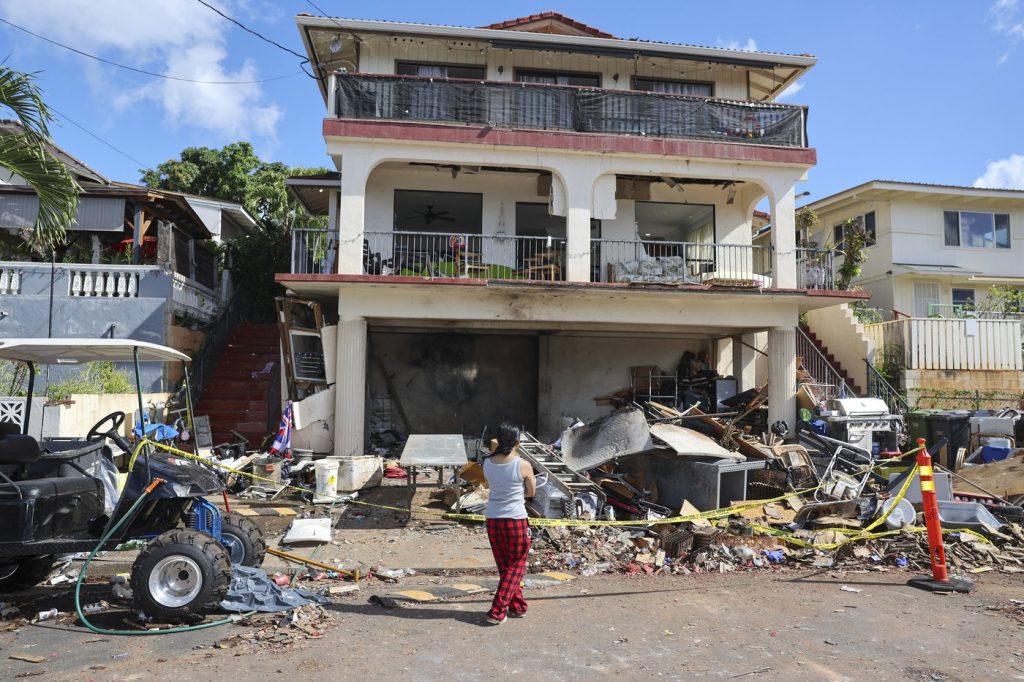HONOLULU (AP) — On Monday, Hawaii Governor Josh Green announced a proposal for new penalties aimed at curbing violations of the state's fireworks laws. This initiative follows a tragic fireworks explosion at a Honolulu residence on New Year's Eve that resulted in the deaths of four individuals and injuries to approximately 20 others.
The proposed measures include the issuance of $300 tickets by police to individuals who ignite fireworks, as well as class A felony charges that could lead to decades in prison for those whose fireworks usage causes serious injury or death. Governor Green intends to present these proposals in a bill to state lawmakers during the upcoming legislative session that begins on Wednesday.
Governor Green expressed the intent behind these new penalties, stating, "We want to deter people from doing this. Three hundred dollars will probably send a chilling effect over a lot of young people, I would expect.” The significance of obtaining a major felony on one’s record, along with potential imprisonment, is hoped to further discourage illegal fireworks usage.
Hawaii has faced ongoing challenges in managing illegal fireworks, which are often launched from residential areas throughout the year. Law enforcement has confiscated over 227,000 pounds (approximately 103,000 kilograms) of fireworks since the beginning of 2023. Much of this was seized from container ships at ports and even from packages shipped by air. The state's Department of Law Enforcement reported that authorities intercept illegal fireworks parcels from the U.S. Postal Service almost daily.
New Year's celebrations are notably associated with increased use of contraband fireworks, often leading to injuries and fatalities. This year, the New Year's period proved to be particularly deadly, emphasizing the need for stricter enforcement mechanisms. Governor Green's proposed changes aim to simplify and clarify existing fireworks laws, which will enable prosecutors to pursue convictions more efficiently.
Under the new proposal, police would no longer need to gather extensive evidence when issuing the $300 citations. A witness—either a police officer or another individual—could simply identify the perpetrator. This approach is intended to aid law enforcement, as evidence in fireworks-related cases tends to dissipate quickly.
Individuals issued the citations would have the option to either pay the fine or challenge it in court, similar to traffic tickets. The infraction would not be classified as a crime, thereby decriminalizing the low-level use of fireworks. The burden of proof required would only necessitate a preponderance of evidence for a fine to be imposed, contrasting with the higher standard of "beyond a reasonable doubt" required for criminal convictions.
The proposed $300 fine is set at the same level as current penalties for using cell phones while driving, linking the two actions in terms of public safety and the potential for causing harm or fatalities. In addition to these initial penalties, Governor Green seeks to impose even harsher repercussions for repeat offenders and individuals whose fireworks use results in serious harm or fatalities. This will apply to those who import, buy, sell, or ignite illegal fireworks.
Currently, possessing over 25 pounds of fireworks constitutes a Class C felony in Hawaii, which can lead to a maximum of five years in prison. The new measures could elevate offenses to Class A felonies, resulting in prison sentences of up to 20 years to life for severe cases.
Governor Green acknowledged the public's enjoyment of fireworks but emphasized that safety must take priority. He proposed increasing the number of public fireworks displays throughout the year as an avenue for people to enjoy fireworks without compromising safety.
Furthermore, the Department of Law Enforcement recently requested $5.2 million from lawmakers to hire additional personnel and expand a forensic lab aimed at combating fireworks smuggling.










